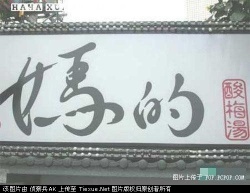“Fuck in China”的版本间的差异
来自China Digital Space
小 (文本替换 - 替换“Category”为“分类”) |
|||
| (未显示2个用户的4个中间版本) | |||
| 第7行: | 第7行: | ||
Netizens write “Ma de in China” to express disgust at something the Chinese government has done. For example, someone may post a comment on their microblog that a certain website has been blocked, and someone will respond in the comment section, “Ma de in China!” Or someone might sarcastically say that the [[SB Conference| World Expo]] was “Ma de in China!” | Netizens write “Ma de in China” to express disgust at something the Chinese government has done. For example, someone may post a comment on their microblog that a certain website has been blocked, and someone will respond in the comment section, “Ma de in China!” Or someone might sarcastically say that the [[SB Conference| World Expo]] was “Ma de in China!” | ||
| − | [[ | + | [[分类:Lexicon]][[分类:Resistance Discourse]] |
| − | |||
| − | |||
| − | |||
| − | |||
| − | |||
2023年8月7日 (一) 05:01的最新版本
Ma de in China: “fuck” in China
妈的 (māde) is short for 他妈的 (tāmāde). Lu Xun, the father of modern Chinese literature, once honored the phrase as China’s “national swearword” [zh]. Literally meaning “his mother’s,” The term is a versatile expletive roughly equivalent to “damn” or “fuck” in English. Sinosplice provides a detailed explanation of the term’s proper usage.
The pinyin used to transliterate the abbreviation closely resembles the first word on the English-language country of origin label so globally ubiquitous in the years that followed China’s economic reform.
Netizens write “Ma de in China” to express disgust at something the Chinese government has done. For example, someone may post a comment on their microblog that a certain website has been blocked, and someone will respond in the comment section, “Ma de in China!” Or someone might sarcastically say that the World Expo was “Ma de in China!”





